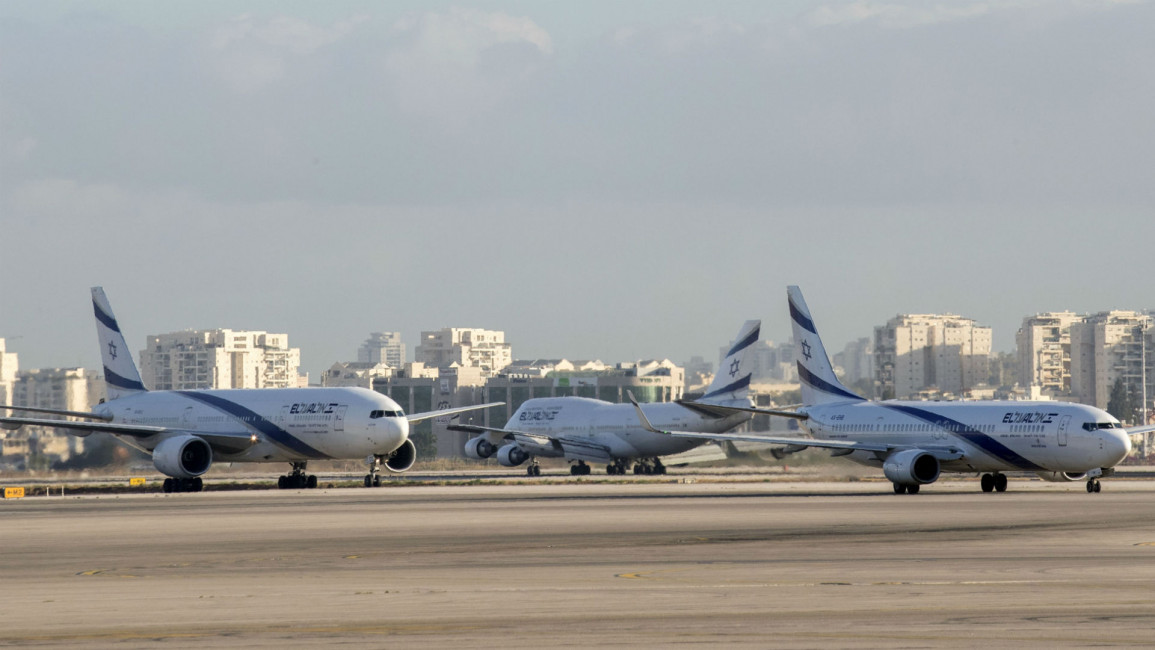Israel to open new Red Sea airport in January
Israel plans to inaugurate a new international airport in the south of the country near the Red Sea later this month, the transport minister announced on Tuesday.
The Ramon airport will begin with only domestic flights before gradually moving toward full operation, Transport Minister Israel Katz said in a statement.
The inauguration ceremony will be held on January 21 with Prime Minister Binyamin Netanyahu in attendance.
Initially domestic flights will be operated by the Arkia and Israir carriers. A timeframe was not given for when the airport will be fully operational.
Construction costs for the airport have been put at 1.7 billion shekels ($455 million, 395 million euros). Work got underway in 2013 but original specifications for the project were revised to allow for upgrades.
The airport will be some 18 kilometres (11 miles) from the Israeli Red Sea resort of Eilat and near the Jordanian port of Aqaba.
Its website says that it will be able to initially handle up to two million passengers annually, but will be able to expand to a capacity of 4.2 million by 2030.
It will replace Ovda airport, some 60 kilometres away from Eilat, and will be able to serve as an alternative to Ben-Gurion International Airport near Tel Aviv during times of emergency.
The new airport is named after Ilan Ramon, Israel's first astronaut who died in the crash of the space shuttle Columbia.
The announcement came as figures from 2018 revealed Israeli immigration authorities are refusing entry to a skyrocketing amount of visitors, indicating the effect of stringent new laws against those who have displayed support for the BDS movement.
According to the analysis of immigration figures by Israeli newspaper Globes, of the 4 million tourists who arrived in Israel this year, almost 19,000 were refused admission by immigration authorities who deemed them liable to commit criminal or security offenses in Israel, or liable to work illegally.
This year's figures reflect a significant jump in the country's notoriously stringent border controls. While in 2016, 16,534 were barred from entering, only 1,870 were refused entry in 2011 - a nine-fold increase over the past seven years.
Part of this shift is due to the recent crackdown on visitors who have supported the Boycott, Divestment and Sactions (BDS) movement. In January 2017, the Israeli government passed a controversial law to bar entry to anyone "who knowingly issues a public call for boycotting Israel".
The legislation targets activists promoting economic sanctions against Israel due to the country's human rights abuses against Palestinians, and has seen huge momentum in recent years.
Rigorous border checks have been aided by the social media boom, whereby immigration authorities can bar entry to someone on the grounds they professed online support for BDS, or expressed plans to work illegally in Israel on Facebook, for example.
Israel's Ben Gurion airport has its own detention centre where turned-away visitors are held before being sent back to their country of origin.
Israel has also come under fire for what Amnesty International calls "cruel and illegal" deportations of mainly African asylum seekers seeking refuge in the Jewish state.
Agencies contributed to this report.
Follow us on Twitter: @The_NewArab






 Follow the Middle East's top stories in English at The New Arab on Google News
Follow the Middle East's top stories in English at The New Arab on Google News


